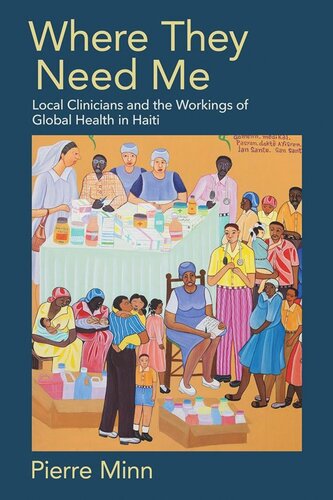

Most ebook files are in PDF format, so you can easily read them using various software such as Foxit Reader or directly on the Google Chrome browser.
Some ebook files are released by publishers in other formats such as .awz, .mobi, .epub, .fb2, etc. You may need to install specific software to read these formats on mobile/PC, such as Calibre.
Please read the tutorial at this link: https://ebookbell.com/faq
We offer FREE conversion to the popular formats you request; however, this may take some time. Therefore, right after payment, please email us, and we will try to provide the service as quickly as possible.
For some exceptional file formats or broken links (if any), please refrain from opening any disputes. Instead, email us first, and we will try to assist within a maximum of 6 hours.
EbookBell Team

0.0
0 reviewsWhere They Need Me examines the work of Haitian health professionals in humanitarian aid encounters. Haiti is the target of an overwhelming number of internationally funded health projects. While religious institutions sponsor a number of these initiatives, many are implemented within the secular framework of global health. Pierre Minn illustrates the divergent criteria that actors involved in global health use to evaluate interventions' efficacy.
Haitian physicians, nurses, and administrative staff are hired to carry out these global health programs, distribute or withhold resources, and produce accounts of interventions' outcomes. In their roles as intermediaries, Haitian clinicians are expected not only to embody the humanitarian projects of foreign funders and care for their impoverished patients but also to act as sources of support for their own kin networks, while negotiating their future prospects in a climate of pronounced scarcity and insecurity. In Where They Need Me, Minn argues that a serious consideration of these local health care providers in the context of global health is essential to counter simplistic depictions of clinicians and patients as heroes, villains, or victims as well as to move beyond the donor-recipient dyad that has dominated theoretical work on humanitarianism and the gift.